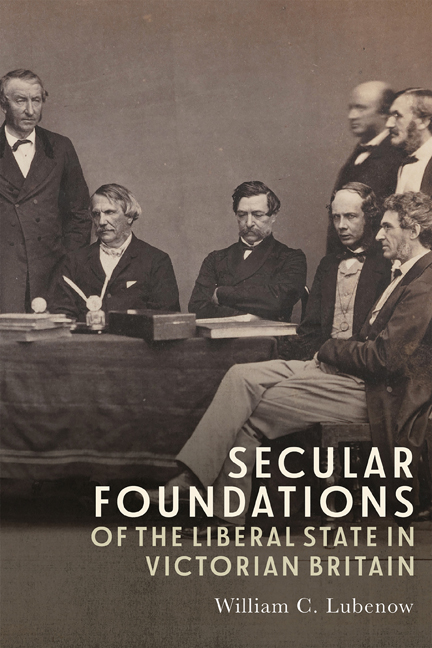Book contents
- Frontmatter
- Dedication
- Contents
- Preface
- Introduction: Methods, Materials, and Theses
- 1 From the Fiscal–Military–Confessional State to the Secular–Liberal State
- 2 From the Northcote–Trevelyan Report to the Order in Council of 1870
- 3 The Haldane Committee and the Creation of the Cabinet Office: Hankey to Hunt
- 4 “Fit and Proper Persons”: The Secular Clerisy
- 5 The Secular Clerisy’s Outillage Mental and Mandarin Solidarity
- 6 Regions of Doubt and Belief – Varieties of Secular Experience: Essays and Reviews, Ecce Homo, and the Gifford Lectures
- Conclusion and Epilogue
- Select Bibliography
- Index
Conclusion and Epilogue
Published online by Cambridge University Press: 09 May 2024
- Frontmatter
- Dedication
- Contents
- Preface
- Introduction: Methods, Materials, and Theses
- 1 From the Fiscal–Military–Confessional State to the Secular–Liberal State
- 2 From the Northcote–Trevelyan Report to the Order in Council of 1870
- 3 The Haldane Committee and the Creation of the Cabinet Office: Hankey to Hunt
- 4 “Fit and Proper Persons”: The Secular Clerisy
- 5 The Secular Clerisy’s Outillage Mental and Mandarin Solidarity
- 6 Regions of Doubt and Belief – Varieties of Secular Experience: Essays and Reviews, Ecce Homo, and the Gifford Lectures
- Conclusion and Epilogue
- Select Bibliography
- Index
Summary
[O]bjectivity cannot be separated from the social aspects of truth.
Gaston BachelardThe civil service is a personnel structure (or more accurately a collection of structures) manifested in a dozen or more statutory laws, in hundreds of executive orders…. But the core of the civil service is an idea rather than a body of personnel regulations. The idea is somewhat distinct from notions of either political leadership or bureaucratic power.
Hugh HecloThere is clearly thought to be something sinister about Cabinet Secretaries. We don't have broomsticks – at least I never did – but we beaver away behind closed doors. We like the shadows and abhor the sunlight, particularly if it is called the Freedom of Information Act. We do good by stealth, and blush to find it fame. Occasionally we do something less than good, and blush still redder if we are found out.
Robert ArmstrongThe Victorian mandarins’ properties were several. They were secular, less and less bound by confessional ties. They rose up from the reformed public schools and the re-forming universities. Therefore, they were creatures of competitive examinations. Since those examinations were literary examina¬tions, they learned to live by their pens. The mandarins bound themselves by loose ties of loyalty in the sprawling interconnections of clubs, societies, and associations. They shaped their identities less through concepts of social class or ideology and rather more through moral concepts drawn from such families as gathered in Clapham Common. Those pieties drifted, slipped, and were shifted by those who wrote the Essays and Reviews and those who gave the Gifford Lectures.
Conclusion
THE Victorian secular clerisy emerged in the wake of Test Act repeal, Catholic emancipation, and the removal of Jewish political disabilities. These were not so much events as they were processes of political seculari¬zation which took the rest of century to express themselves. Even then they were not complete. Political secularization was complex, and indeterminate. The Victorian mandarins were anti-clerical, anti-literal, and anti-dogmatic. But they were not necessarily atheistic or even agnostic. The Victorian mandarins gestated in the period from the Northcote–Trevelyan Report (1853–1854) to Robert Lowe's Order in Council of 1870.
- Type
- Chapter
- Information
- Secular Foundations of the Liberal State in Victorian Britain , pp. 262 - 273Publisher: Boydell & BrewerPrint publication year: 2024



